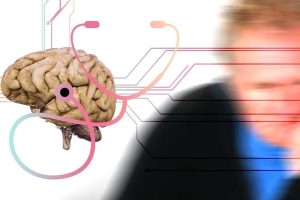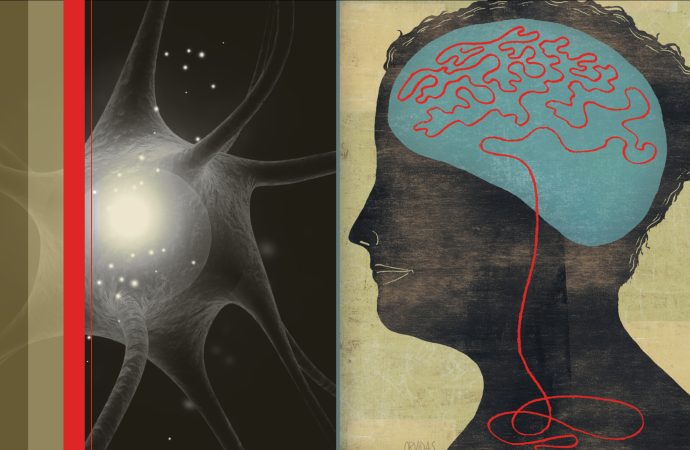Introduction Meet Stanley Prusiner, a luminary in the realm of neuroscience, renowned for his groundbreaking discovery of prions, infectious proteins responsible for several devastating neurodegenerative diseases. As we age, our cognitive abilities often face challenges, but Prusiner’s work provides a glimmer of hope. In this article, we delve into the world of prions and explore
Introduction
Meet Stanley Prusiner, a luminary in the realm of neuroscience, renowned for his groundbreaking discovery of prions, infectious proteins responsible for several devastating neurodegenerative diseases. As we age, our cognitive abilities often face challenges, but Prusiner’s work provides a glimmer of hope. In this article, we delve into the world of prions and explore how they hold the key to revitalizing aging brains through three distinct pathways. Join us on this journey to uncover the remarkable connection between protein and cognitive rejuvenation.
1. The Prion Puzzle: Stanley Prusiner’s Extraordinary Journey
Stanley Prusiner, a name synonymous with groundbreaking discoveries in the field of neuroscience, embarked on an extraordinary journey that would revolutionize our understanding of neurodegenerative diseases. In the early 1980s, Prusiner introduced the concept of “prions,” infectious proteins responsible for diseases such as Creutzfeldt-Jakob disease and mad cow disease.
Prusiner’s audacious hypothesis challenged prevailing beliefs about disease transmission, suggesting that misfolded proteins could induce healthy proteins to adopt their aberrant shapes, leading to the cascade of neurological damage seen in these conditions. Initially met with skepticism, Prusiner’s tenacity and rigorous research eventually earned him the Nobel Prize in Physiology or Medicine in 1997.
Key Points Table:
| Pathway | Key Points |
|---|---|
| Nutritional | – Brain-boosting foods |
| Essentials | – Impact on cognitive function |
| Mental Fitness | – Activities for cognitive flexibility |
| and Neuroplasticity | – Practices for resilience |
| Prion-Inspired | – Emerging therapies |
| Therapies | – Innovative approaches |
| Lifestyle | – Practical tips for implementation |
| Transformation | – Healthier, vibrant lifestyle |
| Prusiner’s Impact | – Ongoing influence on neuroscience |
| – Future prospects and advancements |
2. Protein Power: The Three Pathways to Brain Revitalization
Proteins, often hailed as the building blocks of life, play a pivotal role in brain health and rejuvenation. Stanley Prusiner’s work has shed light on three distinct pathways through which proteins can be harnessed to revitalize aging brains.
3. Pathway 1: Nutritional Essentials for Brain Health
In the first pathway, we dive into the crucial role of nutrition in preserving and enhancing brain function. Just as a well-balanced diet nourishes our bodies, it also fuels our brains.
Certain nutrients, such as omega-3 fatty acids found in fish, antioxidants abundant in colorful fruits and vegetables, and brain-boosting vitamins like B6 and B12, have been linked to cognitive health. Prusiner’s research suggests that incorporating these nutrients into your daily diet can support cognitive vitality.
Furthermore, protein-rich foods, such as lean meats, beans, and dairy products, supply the amino acids necessary for neurotransmitter production. These neurotransmitters are essential for communication between brain cells and play a pivotal role in memory, mood, and cognitive function.

Image by: https://neurosciencenews.com/neuroscience-terms/brain-aging/page/3/
4. Pathway 2: Mental Fitness and Neuroplasticity
The second pathway explores the significance of mental fitness and neuroplasticity in preserving and enhancing brain function. Contrary to the outdated belief that our brains cease to develop after a certain age, Prusiner’s research reinforces the idea that our brains remain adaptable throughout our lives.
Activities that challenge our cognitive abilities, such as puzzles, crosswords, and learning new skills, promote neuroplasticity—the brain’s ability to rewire and adapt. Moreover, mindfulness practices, like meditation and yoga, can reduce stress, which is known to have detrimental effects on cognitive function.
Stanley Prusiner’s work underscores the importance of staying mentally active and engaged as we age. Engaging in these activities not only helps maintain cognitive flexibility but also fosters resilience in the face of age-related challenges.
5. Pathway 3: Prion-Inspired Therapies and Future Possibilities
The third pathway takes us into the exciting realm of prion-inspired therapies and future possibilities. Prusiner’s pioneering work has sparked a wave of research and innovation in the field of neurodegenerative disease treatment.
Scientists are exploring innovative therapies and interventions inspired by prions. These therapies aim to intervene at the molecular level, potentially halting or even reversing the progression of diseases like Alzheimer’s and Parkinson’s.
Clinical trials are underway to test the efficacy of various approaches, from antibody-based treatments to gene therapies. While the field is still in its infancy, the promise it holds for the future of cognitive health is undeniable.
Comparative Table:
| Pathway | Nutrition | Mental Fitness and Neuroplasticity | Prion-Inspired Therapies |
|---|---|---|---|
| Benefits | Enhances brain function | Promotes cognitive flexibility | Combats neurodegenerative diseases |
| Key Elements | Brain-boosting foods | Cognitive exercises, mindfulness | Innovative therapies, research |
| Implementation | Dietary changes, supplements | Brain games, meditation | Clinical trials, medical advances |
| Long-Term Impact | Improved brain health | Enhanced cognitive resilience | Potential for disease prevention |
6. Lifestyle Transformation: Putting Knowledge into Action
Knowledge, without application, remains dormant. In this section, we bridge the gap between theory and practice, offering practical tips and strategies to help you revitalize your aging brain and embrace a healthier, more vibrant lifestyle.
- Balanced Diet: Incorporate brain-boosting foods, antioxidants, and protein-rich sources into your daily meals.
- Stay Mentally Active: Engage in puzzles, learn new skills, and practice mindfulness to promote neuroplasticity.
- Stay Physically Active: Regular exercise boosts blood flow to the brain and supports overall cognitive health.
- Quality Sleep: Prioritize restorative sleep to consolidate memories and promote brain function.
- Social Engagement: Maintain social connections to stimulate your brain and combat isolation, a risk factor for cognitive decline.
7. Stanley Prusiner’s Ongoing Impact
Stanley Prusiner’s groundbreaking research continues to exert a profound influence on the field of neuroscience. His discoveries have paved the way for new horizons in understanding and treating neurodegenerative diseases.
Prusiner’s dedication to unraveling the mysteries of prions has inspired a new generation of scientists and researchers. His vision for the future of neuroscience holds the promise of transformative breakthroughs in the quest to rejuvenate aging brains.
Conclusion
The Protein Connection, as elucidated by Stanley Prusiner, offers a profound opportunity to revitalize aging brains. By understanding and embracing the three distinct pathways of nutrition, mental fitness, and prion-inspired therapies, you can embark on a journey towards enhanced cognitive well-being.
Stanley Prusiner’s work reminds us that our brains, like our bodies, are malleable and responsive to the choices we make. Through a balanced diet, mental agility, and the potential of emerging therapies, you have the tools to rejuvenate your mind and lead a fulfilling, brain-healthy lifestyle.

















Leave a Comment
Your email address will not be published. Required fields are marked with *